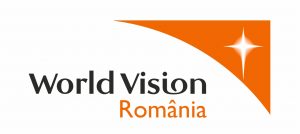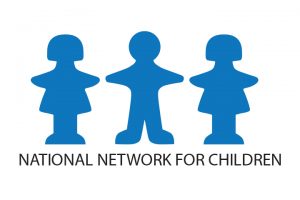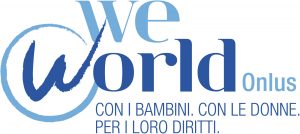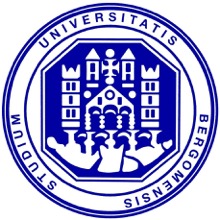FUNDATIA WORLD VISION ROMANIA – Romania – www.worldvision.ro 
World Vision Romania (WVR) is a Christian foundation (non-profit, non-governmental) which implements community development programs, as well as advocacy and humanitarian relief programs mostly in rural areas, placing the children’s wellbeing as their focal point. Our organisation is focusing on working with children, their families and their communities, supporting in efforts to successfully tackle the challenges of poverty and injustice. Inspired by our Christian values, we work with the most vulnerable people, irrespective of religion, race, ethnicity or gender. In 25 years of activity in Romania, WVR has supported over 500,000 children and adults. We are currently supporting more than 20,000 children and 25,000 adults, in 316 communities in Romania. We manage our overall intervention with 435 permanent staff and of 1,000 volunteers. It staff work in 6 Area Development Programs – ADP (regional development structures which implement continuous programs in target communities up to 15 years without interruption) and throughout the country (through projects funded by EU structural instruments). All WVR’s areas of expertise were built around the wellbeing of children. Are: education, health and nutrition, child protection, water and sanitation, agriculture and economic development, spiritual education developed in partnership with local communities and implemented mostly in rural are usually poor and underserved from a service availability standpoint.
National Network for Children – Bulgaria – www.nmd.bg
National Network for Children (NNC) was established in 2003 as a free alliance of NGOs. In 2006, acquired the status of non-profit public benefit organisation. At moment, NNC has 131 civil society member organisations. Its main purpose is to work to strengthen and facilitate cooperation between NGOs and all stakeholders to ensure the rights and welfare of children and families. The main activities carried out are: strengthening the capacity of members, exchange of experience and good practices, advocacy campaigns in partnership with NGOs, businesses, institutions and individuals with the support of children, making informed recommendations for policy reforms for children and families, active work to consolidate the non-governmental organizations working in field of children and families, and to improve communication, sharing and exchange of experiences and best practices, development of open civil network, working on issues related to children and families. The Network is asked for statements and expertise opinion on deinstitutionalization in Bulgaria and child poverty by international organisations.
status of non-profit public benefit organisation. At moment, NNC has 131 civil society member organisations. Its main purpose is to work to strengthen and facilitate cooperation between NGOs and all stakeholders to ensure the rights and welfare of children and families. The main activities carried out are: strengthening the capacity of members, exchange of experience and good practices, advocacy campaigns in partnership with NGOs, businesses, institutions and individuals with the support of children, making informed recommendations for policy reforms for children and families, active work to consolidate the non-governmental organizations working in field of children and families, and to improve communication, sharing and exchange of experiences and best practices, development of open civil network, working on issues related to children and families. The Network is asked for statements and expertise opinion on deinstitutionalization in Bulgaria and child poverty by international organisations.
AcrossLimits – Malta – www.acrosslimits.com
AcrossLimits is a dynamic Maltese commercial entity with its roots firmly derived from the new technology and media sector. In fact, its core business is still centred around the areas of e-Business, Internet and Knowledge Management solutions for Small and Medium Enterprises. However, in last years, AcrossLimits has diversified and now is made up of 3 main divisions, namely Technology, European projects and Education. AcrossLimits was established in June 2001 as a limited liability company, though its members already worked together prior to that date under a partnership agreement and in fact, have been developing IT-related systems since 1996. With representation offices in Italy, Spain and Greece, AcrossLimits is able to provide various services relating to Information Technology, especially focusing on its three core areas of eLearning, eHealth and Digital Culture. During its 13 years lifetime, AcrossLimits has put together various projects that included eLearning platforms, quizzes, online games and simulations the teaching of languages, sciences and cultural traditions from a mix of open source and commercial software.
WeWorld Onlus – Italy – www.weworld.it

WeWorld is a non-profit non-governmental organisation for development cooperation, recognised by the Italian Ministry of Foreign Affairs; independent, non-denominational and apolitical. Established in Milan in 1999, WeWorld works in Italy, Asia, Africa and Latin America to support children, women and local communities in fight against poverty and inequality and to promote sustainable development. WeWorld fosters a culture of mutual support, social commitment, and respect for human rights. In looking to achieve long-term integrated development, WeWorld chooses to operate in areas with a high poverty index. In working with local partners in various at same time – health, education, food safety, children’s and women’s rights, environmental sustainability, and community engagement – it aims to lay solid foundations for real, lasting community development. We world collaborates, with at network other civil-society organisations to give the most vulnerable people a voice on Italian and international political agenda.
UNIVERSITA’ DEGLI STUDI DI BERGAMO – Italia – www.unibg.it
The Department of Human and Social Sciences draws from particular disciplinary research areas such as pedagogy, psychology, sociology, anthropology, philosophy, computer science and the multimedia. The scientific results of this heuristic commitment, usually characterised by interdisciplinary working methods, are increasingly recognised both nationally and internationally. Also reported and discussed in scientific community, as well as in publications, with significant presence of weekly seminars, conferences and workshops both at national and international level.
Scoala Gimnaziala Mihai David Negresti – Romania – http://www.scoalamihaidavidnegresti.ro/
Secondary School “Mihai David” is based in Negresti town, Vaslui county and provides efficient education services for all children in the town and the surrounding areas. The town of Negresti is one of the 316 communities where World Vision is working in Romania with a long-term commitment program. 814 students from 1st to 8th grade are enrolled in 31 classes. 44 teachers ensure the educational process. The community that school is serving – Negresti – is very small community in NE of Romania. It can hardly be called a town. It is high unemployment and poverty rate and no horizons for improvement. Due to low living standards of community, many people have had to go abroad look for work. Some could not take the whole family along with them, some went but returned soon unsuccessfully. In most cases, children were left in care other parent, grandparents, relatives and even close friends. This exodus brought with it numerous cases of single parent families in which children are most affected. Poverty, especially, is one of the most important ESL risk factor. Parents prefer to keep their children at home and work to produce income for the family or help with the household. In many cases, parents complain that poor can’t afford to children the necessary school supplies and clothes to school. Of experience shows are many poor families who prioritised their children education and were able to cover their expenses.
Scoala Gimnaziala Cosereni, lalomita County – Romania – http://www.scoalacosereni.ro/
Secondary School “Coşereni” is based in Coşereni commune, Ialomita county and provides efficient education services for all children, preschool and school children, in commune. The Coşereni commune is 316 communities where World Vision is working in Romania with a long-term commitment program. 416 students from preparatory grade to 8th grade are enrolled in 17 classes. 31 teachers ensure the educational process. The community that school is serving – Coşereni – is small community with 5000 inhabitants, located in South of Romania. Most of people living in community are working in subsistence farming, so many people have big or small town around their area, or go abroad look for work. In cases, children were left in care other parent, grandparents, relatives and even close friends. This exodus brought with it numerous cases of single parent families in which children are most affected. Poverty, especially, is one of the most important ESL risk factor. Parents prefer to keep their children at home and work to produce income for the family or help with the household. In many cases, parents complain that they are so poor that they can’t afford to children the necessary school supplies and clothes to school. Yet, our experience shows are many poor families who prioritised their children education and were able to cover their expenses.


